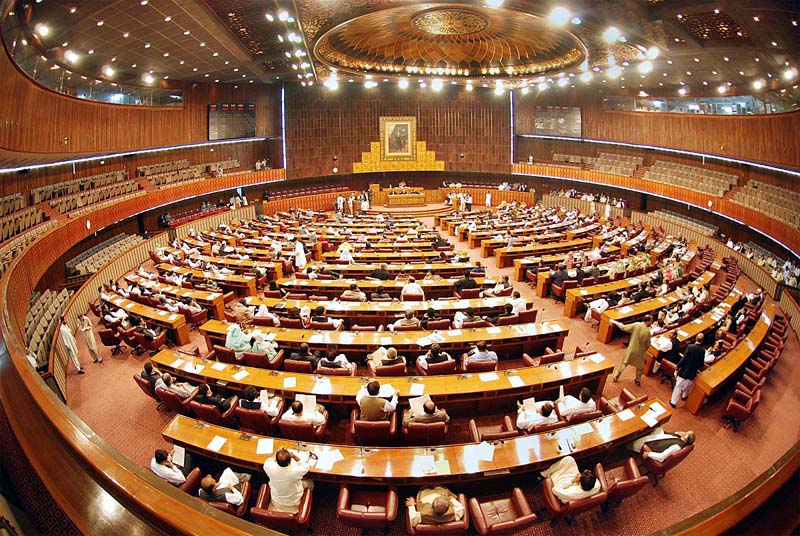Committee Forms Sub-Committee to Address the Issue; Report on Daily Wagers’ Salaries Expected in One Month
Chairman of HEC Calls for Reserved Seats for Needy Students in Public Universities, Urges Regulation of Private Universities
ISLAMABAD ( WEB NEWS )
The National Assembly Standing Committee on Education has revealed that daily wage teachers in government educational institutions in the federal capital are paid a monthly salary of only 28,000 Pakistani rupees. The committee members expressed strong displeasure at this, stating that teachers are being paid less than laborers. To address this issue, the committee formed a sub-committee comprising member Shazia Sobia, representatives from the Federal Board, and an NGO representative. The sub-committee is tasked with presenting a report on the salaries of daily wage teachers within one month.
Chairman of the Higher Education Commission (HEC), Dr. Mukhtar, stated that there are seats available in public sector universities for deserving children, but private universities need to be regulated. He emphasized that when public universities raised fees by just two thousand rupees, protests erupted, but private universities are charging millions in fees.
The meeting of the National Assembly Standing Committee on Education was held at the Federal Board office, under the chairmanship of acting Chairman Aslam Ghumman. Chairman of the committee, Azamuddin Zahid, participated in the meeting via video link. During the session, the committee members approved the minutes of the previous meeting. Member Shazia Sobia objected to the exclusion of her points from the minutes. Acting Chairman Aslam Ghumman reprimanded the Ministry of Education for not including Shazia Sobia’s suggestions in the meeting agenda, stating that such matters should be prioritized instead of treating them as insignificant.
The issue of low salaries for teachers in private schools and educational institutions run by NGOs was also discussed. Agha Rafiullah pointed out that once the minimum wage is set by the constitution of Pakistan, it should be enforced. He mentioned that employers often offer wages at their discretion and claim that workers are satisfied, which is not the case. Acting Chairman Ghumman noted that some schools have “ghost teachers,” and emphasized that if someone is working hard and teaching, they should be paid fairly and on time. He also highlighted cases in Punjab, where private companies took over schools, and teachers did not receive salaries for six months.
Committee members proposed that the minutes of meetings should be followed up with actions and reports on recommendations. During the meeting, a discussion was held on the salaries of daily wage teachers, with the Director of the Federal Board explaining that their maximum salary is 28,000 rupees. He mentioned that NGOs provide teachers with laptops and other benefits. However, Acting Chairman Ghumman stopped the Director from providing a defense, stating that the purpose of the briefing was not to praise the NGO’s efforts.
The Federal Secretary of Education explained that the basic salary for regular teachers in Grade 16 is 40,000 rupees. He added that regular teachers are required to perform additional duties, such as election duties, while daily wage or visiting teachers do not have such obligations. Acting Chairman Ghumman formed a sub-committee, which will present a report on the salaries of daily wage teachers within one month.
Agha Rafiullah’s proposal to reserve special seats in universities for deserving students was also discussed. He suggested that children with potential but unable to afford university education should be granted special seats. He also proposed that disabled students should be given priority in university admissions. Dr. Mukhtar, Chairman of HEC, mentioned that the Higher Education Commission has the authority to offer seats in public universities for deserving students. He further emphasized the need to regulate private universities, stating that they should prioritize deserving and capable children. He pointed out that while public universities face protests for small fee hikes, private universities charge exorbitant fees, citing institutions like LUMS and Aga Khan University, where fees are up to 2.5 million rupees.
Committee member Mahtab Akbar Rashdi suggested that under Corporate Social Responsibility (CSR), large companies should contribute towards the education of deserving and disabled children. Secretary of Education, Mohiuddin Wani, added that 25% of scholarships should be reserved for deserving students.
The committee also recommended the appointment of the Chairman of the Federal Public Service Commission (FPSC) based on merit, with the acting Chairman, Aslam Ghumman, emphasizing that the FPSC chairman should not be politically appointed. The committee’s 20 members urged the need for the FPSC chairman’s appointment to be merit-based.

